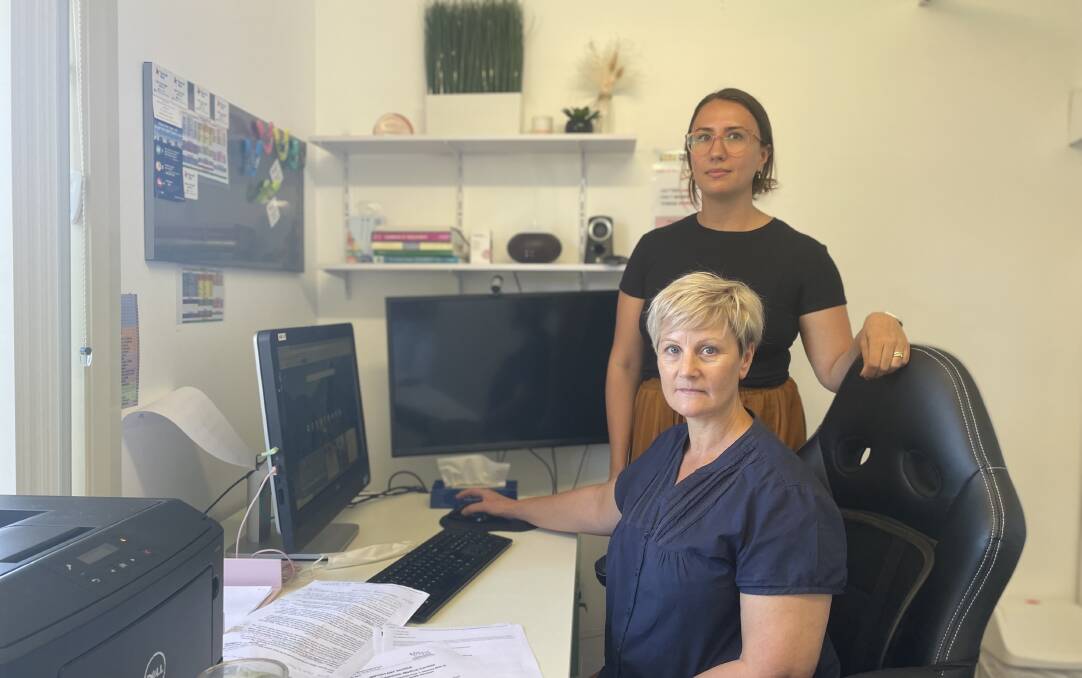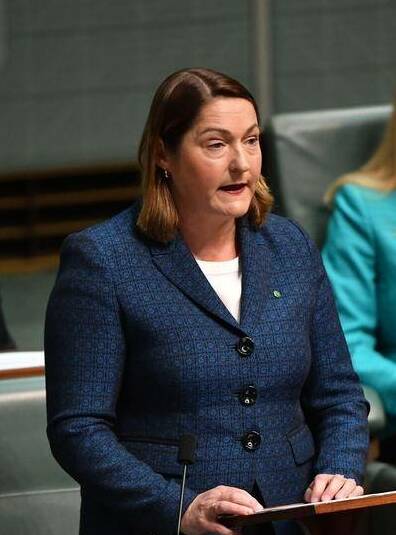
When a mother of two experienced a period of major depression, it was psychiatrist appointments conducted via telehealth that "saved her life".
Subscribe now for unlimited access.
or signup to continue reading
"I'd always had a history of depression," said the 49-year-old, who wishes to remain anonymous to protect her identity.
"But it wasn't until my early 40s after a divorce that my mental health really gave out on me.
"And it's only through having access to telehealth and my psychiatrists that saved my life, to be quite honest with you."
Living regionally, she said telehealth made psychiatrist appointments accessible for someone living with debilitating mental illness and with a lack of public transport to the nearest city.
"For people that are isolated, it's a lifeline," she said.
But now she fears she will no longer be able to afford the appointments after the withdrawal of a Medicare Benefits Scheme (MBS) item has caused psychiatrists to reassess their bulk billing model.
"I was very ill for a total period of five years and I couldn't hold a job down," she said.
"But even though I am working again, it's in the retail sector...I couldn't afford to pay private psychiatric fees."

Item 288 of the MBS is designed to give regional and rural people greater access to specialists' appointments by encouraging specialists to provide services specifically in rural and regional areas.
However, the loading item has been withdrawn from the MBS as of January 1, 2022.
This means there will be a 33 per cent cut to the Medicare rebate that patients receive in rural and regional communities for specialist telehealth services, according to psychiatrist Peter O'Brien.
"I've already heard comments from psychiatrists who won't be able to continue doing rural work and will have to work in a city area where patients can pay the difference," said Dr O'Brien.
"I'm certainly very worried about disadvantaged people in Aboriginal communities and rural and regional communities. It's going to dramatically reduce their ability to see a psychiatrist."
The Department of Health confirmed that telehealth arrangements, including for psychiatrists, would instead be consolidated under MBS video-only telehealth items, as part of the federal government's move to make telehealth services permanent.
"As part of the consolidation, older specialist telehealth items such as item 288 which provided a fee loading have been discontinued," a spokesperson said in a statement.
"This item was introduced in 2011 in a different technological time to encourage specialists to take up video and adopt new technologies at a time when they were novel and expensive.
"With the widespread use of video conferencing and very large take up of the COVID-19 telehealth items since March 2020 that rationale no longer holds."
According to mental health nurses, psychiatrist telehealth appointments could cost patients anywhere from $250 to $500 per appointment out of pocket as of January 1.
"The companies that psychiatrists work through us said it's not going to be sustainable if they take this (item) away, because they can't afford to run," said mental health nurse, Nicola Rice of the Vincentia Medical Centre.
"Because of the complex mental health a lot of our consumers have, they're not in the workforce and won't be able to afford it.
"And with the public transport in this area, there's no way for some of them to get to metropolitan areas for a psychiatry appointment.
"We're looking at Wollongong or further to be able to access that."
The nurses said it was an "abrupt" change, finalised on December 15, and said it was not enough time to make transition plans for patients with complex mental illnesses and medication regimes who rely on the ongoing psychiatric care.
"The timing couldn't be worse," said Ms Rice.
"It's a couple of weeks before Christmas, we're still in the pandemic, we've not long got over the (Black Summer) bushfires. And now all of a sudden it's been withdrawn.
"Our patients have severe and enduring presentations of mental health...it's ongoing support that's needed."

The Department of Health spokesperson said there was no longer a need for a separate item for specialist telehealth appointments as the utilisation of the fee loading items comprised about 1 per cent of total medical specialist consultations in 2021.
"The rapid and sustained uptake of video and telephone attendances for the more recent telehealth items has shown that specialists can provide video and phone services without the loading," the spokesperson said.
"In 2021 specialists provided about 2.5 times more video consultations on items without the loading than the items with the loading."
But the uptake of such specialist appointments is still high, according to Ms Rice.
"In the last 18 months, we have facilitated nearly 2000 telehealth appointments," said Ms Rice.
"Each week, we do between 60 and 80 appointments."

Member for Gilmore, Fiona Phillips, called on the Morrison Government to "urgently halt" the removal of item 288 and labelled the move "one of the worst decisions fathomable at a time when people need support the most."
"It is incomprehensible that the Morrison Government could even consider this move, knowing the immense strain local people are going through in relation to bushfire recovery, floods and the pandemic," said Mrs Phillips.
"Taking away this Medicare rebate places even more strain on our local GPs, public mental health services and health workers, which is just unfair and not right."
A change.org petition has also been launched calling on the federal government to delay the move.


